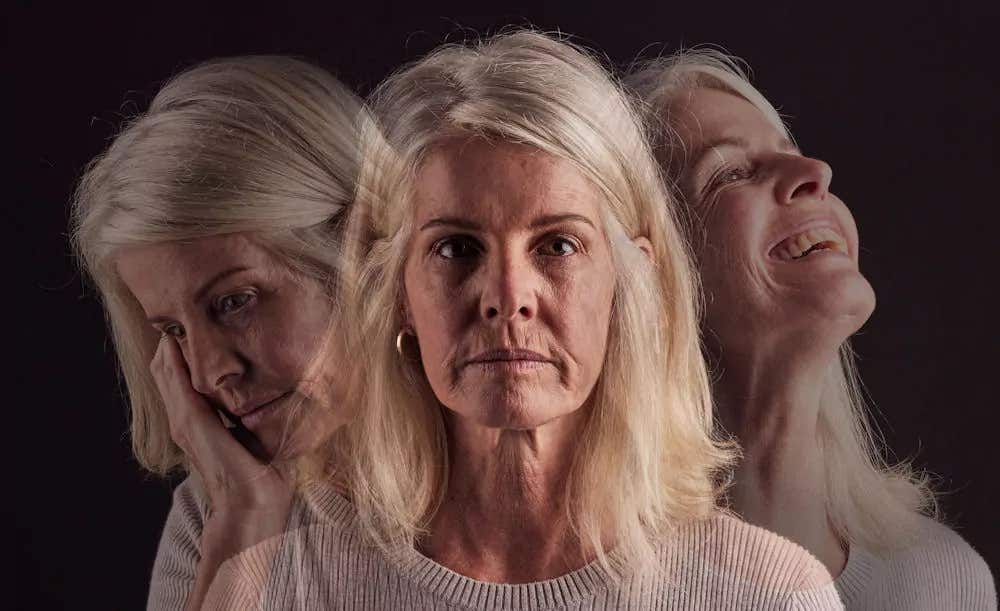New study challenges old theories on the effects of alcohol on mood and addiction
Alcohol plays a role in over 200 diseases and injuries, contributing to more than 175,000 deaths in the U.S. annually and 3 million worldwide.

A new study reveals that people with AUD and depression experience high levels of pleasure from alcohol. (CREDIT: CC BY-SA 4.0)
Alcohol plays a role in over 200 diseases and injuries, contributing to more than 175,000 deaths in the U.S. annually and 3 million worldwide. Excessive alcohol consumption remains widespread, with 10.6% of Americans aged 12 and older—about 29.5 million people—meeting the criteria for alcohol use disorder (AUD).
One of the most common co-occurring conditions with AUD is depression, affecting 33% to 50% of those with the disorder. The relationship between the two is bidirectional, meaning that having one increases the risk of developing the other. Researchers suggest shared genetic predisposition and dysfunction in the brain’s reward and stress systems as potential causes.
For decades, many believed that people with AUD and depression primarily drank to relieve negative emotions—a concept known as the self-medication theory.
This theory aligns with the allostasis model of addiction, which describes how excessive drinking shifts from a positive reinforcement phase, where alcohol brings pleasure, to a negative reinforcement phase, where it’s used to avoid withdrawal and emotional distress.
A New Look at Alcohol’s Effects on the Brain
A study from the University of Chicago Medicine challenges the long-held belief that people with AUD and depression drink primarily to self-medicate. The research suggests that these individuals experience high levels of pleasure and stimulation when intoxicated—similar to those without depression.
"We have this folklore that people drink excessively when they're feeling depressed and that it's really about self-medicating," said Andrea King, PhD, professor of psychiatry and behavioral neuroscience at UChicago and the study's lead author. "In this study of natural environment drinking and smartphone-based reports of the effects of alcohol in real time, participants with AUD and a depressive disorder reported feeling acute, sustained positive and rewarding alcohol effects—just like their non-depressed counterparts."
The study, published in the American Journal of Psychiatry, suggests that treatment approaches may need to shift focus. Current treatments often emphasize addressing stress and depressive symptoms but may overlook the role of alcohol’s pleasurable effects in addiction.
Related Stories
"That is only addressing one side of the coin if we don't also address the heightened stimulation, liking, and wanting more alcohol that occur in both depressed and non-depressed people with AUD," said King.
Studying Alcohol’s Effects in Real Time
The study involved 232 participants aged 21 to 35—the period when heavy drinking is most common. Half of the participants met criteria for AUD, with an even split between those who had experienced a major depressive disorder in the past year and those who had not. Individuals with severe alcohol withdrawal symptoms or suicidal ideation were excluded for safety reasons.
Participants used smartphone-based surveys to record their alcohol experiences. During one drinking episode and one non-alcohol episode, they answered questions every 30 minutes over a three-hour period. The goal was to assess how alcohol influenced their emotions in real-world settings rather than in controlled laboratory environments.
The results showed that alcohol slightly reduced negative emotions, but the effect was small and not specific to those with AUD or depression. However, the positive effects—stimulation and pleasure—were significantly higher among individuals with AUD. Surprisingly, these effects were just as strong in those with both AUD and depression as in those without depression.
"For nearly a decade, our group has been improving methods to use mobile technologies to measure real-time, clinically meaningful outcomes in people with AUD and those at risk for alcohol-related problems," said study co-author Daniel Fridberg, PhD, an associate professor of psychiatry and behavioral neuroscience at UChicago. "These approaches allow us to bridge the gap between the lab and real life and have led to new insights that could one day result in better treatments.”
Rethinking Addiction and Treatment
The study raises questions about the prevailing "dark side of addiction" theory, which suggests that people with AUD eventually drink not for pleasure but to avoid withdrawal and emotional distress. If that were the case, those with depression would likely show diminished positive responses to alcohol, but this research found the opposite.
King compares the strong pleasurable response to alcohol in these individuals to an "accelerator pedal" fueling further drinking. "As treatment providers, we're taught people with AUD are drinking to self-medicate and feel better," she said. "But what exactly are they feeling? From our study, it seems to be high levels of stimulation and pleasurable effects, with a modest decrease in negative states.”
This insight could reshape AUD treatment strategies. If alcohol’s pleasurable effects play a significant role in maintaining addiction, therapies might need to address these reinforcing experiences rather than focusing solely on stress reduction.
King’s next study will examine whether older adults with long-term AUD also experience heightened pleasure from drinking. Conventional wisdom suggests that years of alcohol use dull its pleasurable effects, but if her previous findings hold true, these individuals may still experience strong positive reinforcement from alcohol.
Understanding this could help refine addiction treatment strategies for different age groups.
Note: Materials provided above by The Brighter Side of News. Content may be edited for style and length.
Like these kind of feel good stories? Get The Brighter Side of News' newsletter.
Joseph Shavit
Head Science News Writer | Communicating Innovation & Discovery
Based in Los Angeles, Joseph Shavit is an accomplished science journalist, head science news writer and co-founder at The Brighter Side of News, where he translates cutting-edge discoveries into compelling stories for a broad audience. With a strong background spanning science, business, product management, media leadership, and entrepreneurship, Joseph brings a unique perspective to science communication. His expertise allows him to uncover the intersection of technological advancements and market potential, shedding light on how groundbreaking research evolves into transformative products and industries.



